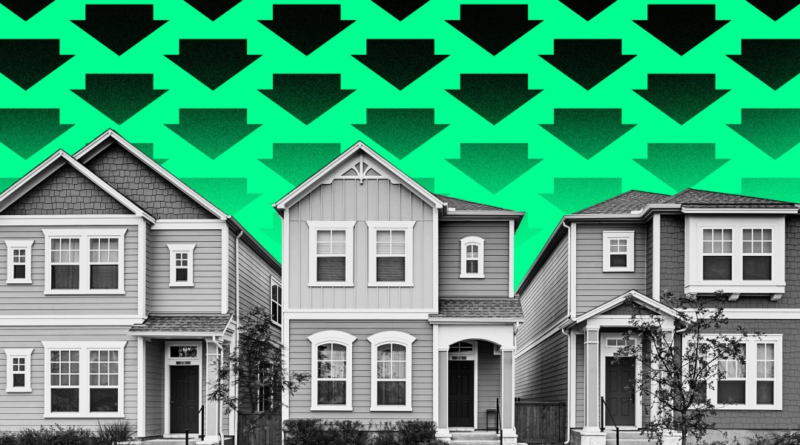Say goodbye to the peak of home price appreciation, Fortune 500 chief economist says—it's behind us
The housing market has been all but impossible to crack for many buyers the past two years. The coupling of mortgage rates and home prices being on the rise made the thought of buying a house painful—and, for sellers, losing their sub-3% mortgage rates from the pandemic made it nearly unbearable to let go of their current homes.
Indeed, home prices reached a new peak for the 10th month in a row in January, according to First American Data & Analytics Home Price Index report. Home prices in January 2024 were 7.2% higher than the same time last year—but the report also shows that peak appreciation may be behind us. That’s thanks to eventual lower mortgage rates, Mark Fleming, chief economist at First American, tells Fortune.
“The expected lower mortgage rates this year will obviously help buyers by improving their home purchasing power, but it also reduces the financial cost of the rate lock-in effect,” says Fleming, who has long roots in studying housing market economics. Before his near decade with First American, and had stints with CoreLogic, which also releases monthly home price index reports, and Fannie Mae. Fleming continues to publish monthly home price index reports at First American.
“The pace of annualized home price appreciation peaked in December, as buyers rushed to take advantage of falling mortgage rates,” Fleming wrote in his January 2024 report. “In January, the preliminary estimate of annualized appreciation cooled modestly by half a percent and is likely to slow down further in the coming months.”
The current 30-year fixed mortgage rate is about 7.13%, according to Mortgage News Daily, lower than the 8% peak in October 2023. Economists and other housing experts are torn on mortgage-rate outlooks for the year, but generally speaking, most expect rates to fall into the 5.5% to 7% range, which is still considerably higher than the rates buyers enjoyed during the pandemic.
What slower home appreciation means for buyers and sellers
Buyers: Don’t get too excited about the news that home price appreciation will slow this year. While that means prices likely won’t increase as much as they have been, it doesn’t mean that you’ll see a noticeable difference in listing prices. First American tracks 30 major housing markets, and none are experiencing price drops as compared to a year ago, Fleming says.
“More supply this year is unlikely to cause outright price declines, just slower appreciation,” Fleming says. However, “the expected moderation in the pace of home price appreciation due to lower mortgage rates in 2024 will be good for potential home buyers as it was harder for homebuying power to keep up with home price appreciation last year.”
On the flip side, lower home price appreciation may finally give current homeowners another reason to list their property. Between lower mortgage rates and less potential for banking extreme home equity values upon sale, the lock-in effect may loosen some for sellers and encourage them to rejoin the market.
“More sellers may be willing to sell and inventory won’t be as restricted as last year. More supply means less upward pressure on house prices,” Fleming says.
Taking a look back at January 2023 to January 2024 home price growth, all 30 major housing markets as tracked by First American had home price increases higher than the national average. Starter home prices in Nassau County, N.Y. (a Long Island suburb), surged a whopping 17.8% year over year in January; and both Pittsburgh and Miami saw 12% increases in their mid-tier and luxury-tier home prices, respectively.
“While house prices increased in all 30 markets tracked by our index over the last year, this rising tide hides the change in market prices since their peak,” Fleming wrote in the report. “Measuring the price change in each market from their post-pandemic peak reveals that house prices are below their prior peaks in 23 of the top 30 markets.”
Back to the ’80s
Fleming has spoken with Fortune on several occasions about the comparison of today’s housing market to that of the 1980s. Both periods featured high inflation, rising interest rates, and a boom of homebuyers coming of age, he argues.
These three factors, Fleming wrote in an October 2023 report, could create a “housing recession” similar to that of the 1980s—a time period when home sales stay low in a frozen, unaffordable market.
While Fleming has drawn several comparisons to the 1980s housing market, today’s market isn’t exactly the same, he says.
“This time is different,” he says. “When the Fed started to reduce rates after tackling inflation in the early 1980s, house price appreciation declined nationally very modestly. Now, because supply has been so constrained, house price appreciation has been very strong and is expected to continue to remain positive as the Fed begins to lower rates.”




